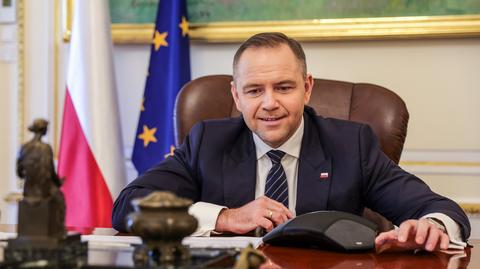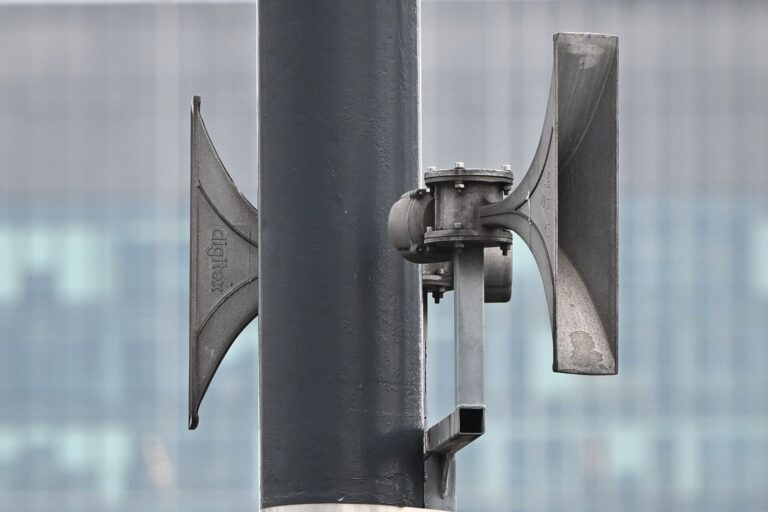Biznes Fakty
The president vetoed the bill on energy deregulation

On Monday, President Karol Nawrocki vetoed the third bill, known as the Energy Deregulation Act, as announced by Zbigniew Bogucki, head of the Presidential Chancellery. This act, among other things, increased the power threshold for renewable energy installations that require licensing. It also aimed to streamline electricity billing.
According to Bogucki, in explaining the veto, „the government is once again trying to permit a level of arbitrariness concerning renewable energy installations.”
„They are constructing renewable energy installations up to 5 MW without needing a permit. These indeed qualify as medium-sized installations and would evade any state oversight. I understand that this was excluded from the Wind Farm Act, thus they sought to supplement it with this legislation,” he remarked.
The vetoed provisions elevated the threshold for licensed renewable energy installations from 1 to 5 MW. Additionally, the stipulations for photovoltaic installations requiring a building permit were raised, increasing the limit from 150 to 500 kW, contingent upon the installation being used solely for personal consumption. Furthermore, the installation was restricted from being situated in conservation areas, such as national parks, nature reserves, landscape parks, Natura 2000 sites, protected landscape areas, ecological sites, nature and landscape complexes, or their designated buffer zones.
„The public interest must come first. Only once this public interest is guaranteed and the state retains control over the types of installations that are established can we engage in discussions about further actions,” Bogucki stressed. „We can explore renewable energy sources, but this must be done in a transparent and logical manner, not through various lobbying tactics designed to allow unrestricted construction,” added the head of the Presidential Chancellery.
The legislation also aimed to simplify electricity billing, ensuring that only the essential cost components were visible, thereby enabling household consumers to comprehend the actual cost of energy, including its trade, distribution, and the total amount due.
Moreover, the act sought to modify the regulations surrounding cable pooling, which pertains to connecting multiple installations to a single grid connection, allowing all renewable energy sources, not just specified ones, to take advantage of this arrangement, along with energy storage facilities. It also included a clause postponing the President’s publication of the capacity fee rate by the Energy Regulatory Office from September 30th to October 31st of this year.
The Minister’s Response
– The president’s veto is detrimental to entrepreneurs – stated Energy Minister Miłosz Motyka on platform X. He highlighted that all proposals had been consulted and approved by the Energy Regulatory Office.
As Motyka pointed out, the act introduced several simplifications – an energy storage facility could also be linked to a single connection through cable pooling, electricity bills were to be streamlined, and photovoltaic installations up to 500 kW would not require building permits – but only those functioning off-grid, with energy used for personal needs.
What Does the Act Include?
Meanwhile, Maciej Berek, Minister of Supervision over the Implementation of Government Policy, detailed the act’s provisions on X. Berek indicated that it encompasses provisions such as:
– simplified electricity bills – transitioning from paper to electronic communication between energy companies and customers (unless the consumer prefers traditional mail) – extending the cable pooling framework to incorporate energy storage facilities – increasing the capacity limit for photovoltaic installations (for own needs) from 150 kW to 500 kW, which could be constructed without needing a permit (notification would be required) – raising the threshold for renewable energy installations not requiring a license from 1 MW to 5 MW (with a simpler registration process).
– All these deregulation measures in the energy sector are present in the act he declined to sign today – he emphasized.
Presidential Veto
The president announced on Monday that he had vetoed three bills, including an amendment to the Fiscal Penal Code and the Tax Ordinance, which aimed to lessen penalties for formal fiscal violations. „I do not agree with reducing penalties for financial crimes in the precarious condition of Polish public finances,” he stated, explaining his decision.
Nawrocki also opted not to sign the amendment regarding assistance to Ukrainian citizens. „The law concerning assistance to Ukrainian citizens does not address the amendments that were the focus of public discussion. I will maintain my stance and believe that the 800+ benefit should be available solely to Ukrainians who are willing to work in Poland,” the president commented.



